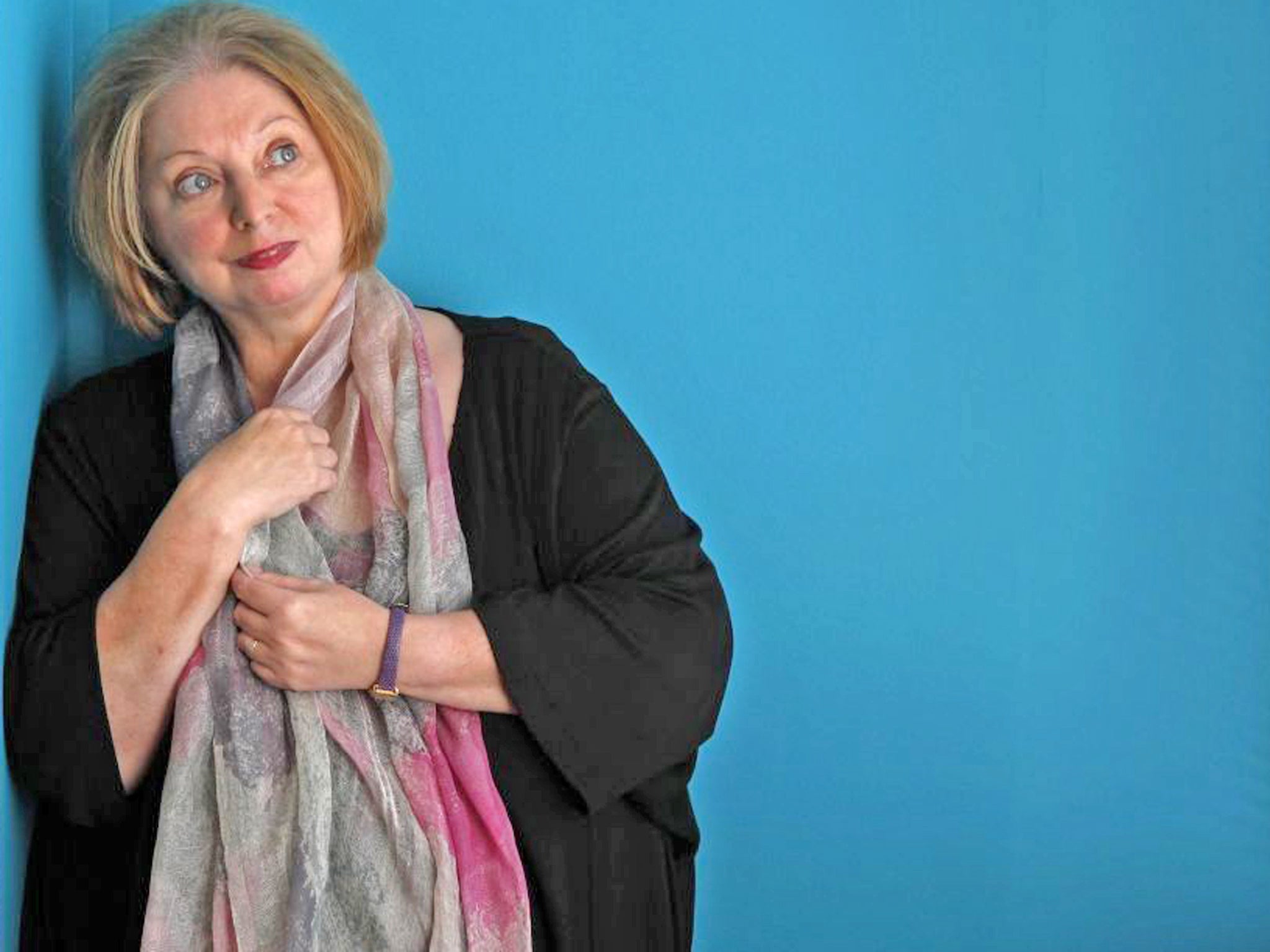Bath Literature Festival: Audience more interested in Hilary Mantel's Booker-winning novels than 'shop-window mannequins'
An audience with the author at the Bath Literature Festival

Your support helps us to tell the story
From reproductive rights to climate change to Big Tech, The Independent is on the ground when the story is developing. Whether it's investigating the financials of Elon Musk's pro-Trump PAC or producing our latest documentary, 'The A Word', which shines a light on the American women fighting for reproductive rights, we know how important it is to parse out the facts from the messaging.
At such a critical moment in US history, we need reporters on the ground. Your donation allows us to keep sending journalists to speak to both sides of the story.
The Independent is trusted by Americans across the entire political spectrum. And unlike many other quality news outlets, we choose not to lock Americans out of our reporting and analysis with paywalls. We believe quality journalism should be available to everyone, paid for by those who can afford it.
Your support makes all the difference.Hilary Mantel might have felt a touch of nerves tonight as she strode out to the audience at the Independent Bath Literature Festival in her first public appearance since her comments about the Duchess of Cambridge hit the headlines.
Perhaps that was why she began talking in a near whisper – the microphone malfunction was soon rectified- and also why there was relatively little time left for the audience Q&A at the end – JK Rowling had spent far longer taking questions from the floor at the same venue just the previous night.
When the 1,600 strong audience was given a chance to speak to her, they had pressing questions to ask, all of which revolved around the machinations of the Tudor court, with no mention of modern-day princesses or “shop-window mannequins” with plastic smiles.
Earlier this week, Mantel was asked about the controversy and had taken a defiant stance, saying that she had nothing to apologise for and that the media had distorted the sympathetic context of her words. A day before her arrival in Bath, her publisher, Fourth Estate, cancelled media interviews in what appeared to be a panicked endeavour at damage limitation.
Fourth Estate needn’t have bothered. The audience at Bath showed they, at least, were far more interested in her double Booker-winning books, Wolf Hall and Bring Up the Bodies.
Speaking about her passion for writing – particularly about the past – Mantel said her first novel at the age of 22 was “an enormous novel about the French revolution”. She described her job as a historical novelist as “talking to the dead for a living” and compared it to that of a psychic. “If you go around saying ‘I talk to dead people’, you could get sectioned. If you say you talk to the dead and get paid for it like a psychic or a writer, you are allowed to get away with it.”
She revealed that in one trip to a palm reader – as field research for a book she was writing about clairvoyance called Beyond Black – the psychic told her “Oh, dear, you haven’t got much imagination, have you?”
The reason she began writing historical fiction was because she could hinge her imagination to hard facts. “I’m Little Miss Index Card. I have a filing cabinet where my heart should be. But it’s not enough to describe the clothes worn by people in the past. They have to stop becoming costumes and become your everyday clothes… The chief pleasure is fitting the evidence and imagination together,” she said.
Mantel is currently working on the last in the Thomas Cromwell trilogy, The Mirror and the Light. She revealed scant detail of her third work-in-progress, but did say that she would be exploring the “circumstances” around a Holbein painting of Cromwell that she only touched on in Wolf Hall.
While these Tudor novels are clearly political, they are not allegories for the state of modern politics, she added. “The story is political in every fibre of its being. But it really is about the people I’m writing about. It has contemporary resonances but I think the characters should be respected in their own right.”
Speaking of her early education by Catholic nuns, she said it was more a lesson in superstition than in religion. She described her first encounter with Shakespeare at the age of eight. There was a scene from Julius Caesar in a book and Mantel, thinking this was the complete works of Shakespeare, memorised the entire speech. “Shakespeare is not just an author for me. He is like a demi-god.”
Join our commenting forum
Join thought-provoking conversations, follow other Independent readers and see their replies
Comments